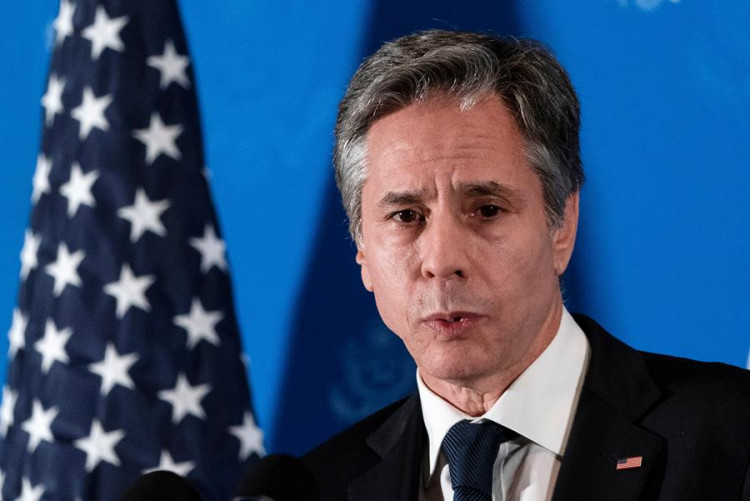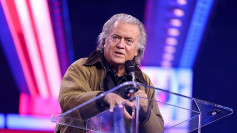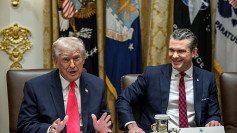During an event at the APEC meeting in San Francisco, U.S. Secretary of State Antony Blinken mentioned that President Joe Biden has approved a labor strategy document he spearheaded, drawing attention to the future focus of foreign policy for the world's largest economy.
This strategy, the first explicit global labor strategy by the U.S. government, was proposed by Blinken, U.S. Trade Representative Katherine Tai, and Acting Labor Secretary Julie Su. Blinken indicated that this move formally acknowledges labor rights as key to U.S. national security and foreign policy. Tai noted that the rights of workers around the world impact American workers due to interconnected economic relationships.
According to a presidential memorandum released by the White House on the same day and signed by Biden, workers' rights will be incorporated into U.S. foreign diplomacy, international development, trade, climate, and global economic policies, aiming to advance high labor standards internationally.
The memorandum outlines the current U.S. administration's policy to adopt a holistic approach and integrate various federal agencies to promote worker empowerment and organization, labor rights, and labor standards globally, enhancing America's leadership in this area.
Specific methods include increasing policy consistency within the entire Biden administration and planning to involve external stakeholders, such as workers, labor organizations, unions, other civil society groups, employers, and government officials.
In terms of implementation, the memorandum states that U.S. overseas agencies should collaborate, as appropriate, with domestic and foreign governments, workers, labor organizations, unions, civil society, and the private sector to protect and promote internationally recognized labor rights, including preventing forced labor, child labor, and related labor abuses.
Specifically, U.S. missions abroad should engage regularly and robustly with domestic and foreign labor stakeholders on labor issues, worker empowerment, and labor rights before, during, and after executing high-level missions and negotiations abroad. Such engagements should include meetings with democratically elected union leaders, workers, labor rights defenders, and other labor advocates as part of high-level engagement and negotiation processes.
Additionally, the Secretary of State should direct mission chiefs to engage directly in labor diplomacy, strengthen planning and public diplomacy concerning workers and internationally recognized labor rights, and incorporate the promotion of labor rights and decent work outcomes into national strategic planning.
To combat repression and targeting of labor leaders and worker rights advocates, U.S. overseas agencies should, where appropriate, publicly express concern about the risks faced by these individuals, focusing on cases of frontline and threatened labor rights defenders, and support their protection. Whenever possible, U.S. overseas agencies should seek opportunities to coordinate similar actions and information with like-minded partners.
Furthermore, to collaborate bilaterally and within multilateral organizations with allies and like-minded partners, heads of relevant agencies should take steps to undertake work within multilateral organizations, including the International Labour Organization (ILO) and other United Nations agencies, the Organisation for Economic Co-operation and Development, the G7, the G20, and other regional bodies.
The U.S. Treasury Secretary should also coordinate with the Secretary of State, the Labor Secretary, and other relevant agency heads to advocate for the robust implementation of labor safeguards in multilateral development bank financing, focusing on freedom of association collective bargaining, occupational health and safety, combating forced labor and child labor, and supply chains.
Additionally, the Secretary of State, the Treasury Secretary, the Attorney General, the Labor Secretary, the Homeland Security Secretary, and the U.S. Trade Representative should consult with other relevant agency heads to consider developing a comprehensive effort to eliminate forced labor in global corporate operations and supply chains through strengthened collaboration with key stakeholders, including workers, industry, non-governmental organizations, and like-minded international partners.
The memorandum specifically lists a requirement based on the "Uyghur Forced Labor Prevention Act" to prohibit the import into the U.S. of goods wholly or in part mined, produced, or manufactured with forced labor from the Xinjiang Uyghur Autonomous Region of China. This act, signed by the Biden administration in December 2021, took effect last June.
The U.S. earlier listed two Chinese entities on its list for human rights reasons. In early August, a spokesperson for China's Ministry of Commerce responded, saying that the U.S. action lacked factual basis and transparency, and was a typical act of economic coercion. China strongly condemns and firmly opposes this, stating that there is no so-called "forced labor" in Xinjiang. The U.S. fabricates and hypes up baseless lies, arbitrarily sanctions Chinese companies, and disrupts the prosperity and stability of Xinjiang under the guise of "human rights."
Regarding the Biden administration's new global labor strategy, the largest international worker rights organization in the U.S., the "Solidarity Center," said it is a policy roadmap for the U.S. government to expand the use of diplomatic and trade levers as well as multilateral tools to garner more national support for protecting worker rights.
The organization pointed out that the U.S. trade policy in Mexico, which links workers' rights to U.S. market access and invests in independent union organizations, including a rapid response complaint mechanism, has been effective. This worker-centered trade policy should be replicated, and with the rollout of the Biden administration's new global labor strategy, the Mexican model could be an example of its potential impact.





